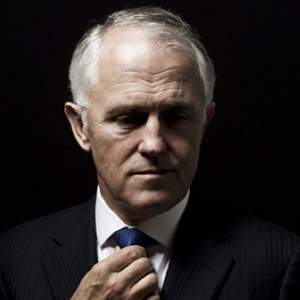When the state possessed the Way, the leader was wise; when the state lost the Way, the leader was stupid.
Confucius
Australia now has its sixth Prime Minister in ten years (if you include Rudd V1 & 2). Through 2018 Malcom Turnbull has held on to his leadership by a thread, having failed to hold back a growing tide of discontent in his party room.
Contrast this with Elon Musk who has managed to hold on to the leadership of Tesla Inc. despite repeated production setbacks and a series of public gaffes including an interview with the New York Times during which he conceded the strain of his job is affecting his health.
What lessons can be drawn from these leaders in 2018? And why has one failed while the other prevails?
Benziga.com has estimated the value of Elon Musk’s personal brand to his public companies at US$127b (AU$173b). Musk has built an empire on audacious goals articulated as helping humanity and the planet. His is the ‘impossible is nothing’ vision — the American dream par excellence. When Musk speaks Americans hear echoes of Henry Ford, Howard Hughes, Bill Gates, Steve Jobs, et al. Because Musk has never wavered from his vision, the market is prepared to ride out his personal and corporate challenges. The market wants to believe.
Australians also want to believe — in leaders who are prepared to courageously stand behind their vision. But, as cutting down ‘tall poppies’ is a national pastime, our visionaries and high achievers are loathe to build the public profiles necessary to articulate the vision. Nominally a meritocracy, Australia is, above all, fiercely egalitarian. We don’t automatically respect titles and we’re often suspicious of those among us who have achieved personal success.
Yet, having a leader who has a strong public profile can help an organisation ride through turmoil. By putting himself at the centre of Tesla’s recent challenges, Musk has shielded members of his board and executive team from criticism. The strength of his personal brand acts as a reputational buffer for the business.
Compare that with Turnbull who has consciously allowed his personal brand value to slowly erode as he sacrificed his vision for Australia in the name of party room consensus.
Musk and Turnbull’s recent challenges tell us three important principles about leadership:
1. Never compromise core beliefs
If it’s necessary for the leader to compromise his/her core beliefs in order to lead the organisation, then this is a cultural misalignment which is unlikely to be reconciled. Strong leadership can never be achieved at the expense of core beliefs. This is as true for CEOs and corporations as it is for prime ministers.
2. Leaders must be the embodiment of the organisation they lead
There is great value in corporate leaders building and maintaining a strong public profile. It helps position the organisation for success and can shield the organisation in times of crisis.
3. Authenticity is the key
Credibility might get you into the leadership chair but it's authenticity that will earn you the credit to achieve your vision. Strong and effective leadership communication is as much about being ‘on vision’ as it is about being 'on message'. This means giving the leader the ability to communicate from the heart what they truly believe in. Fail the authenticity test and your credibility as a leader will soon follow.
| The CVs of Malcolm Turnbull and Elon Musk are both impressive but only Musk has been true to his own personal brand. | |
 |
 |
|
|